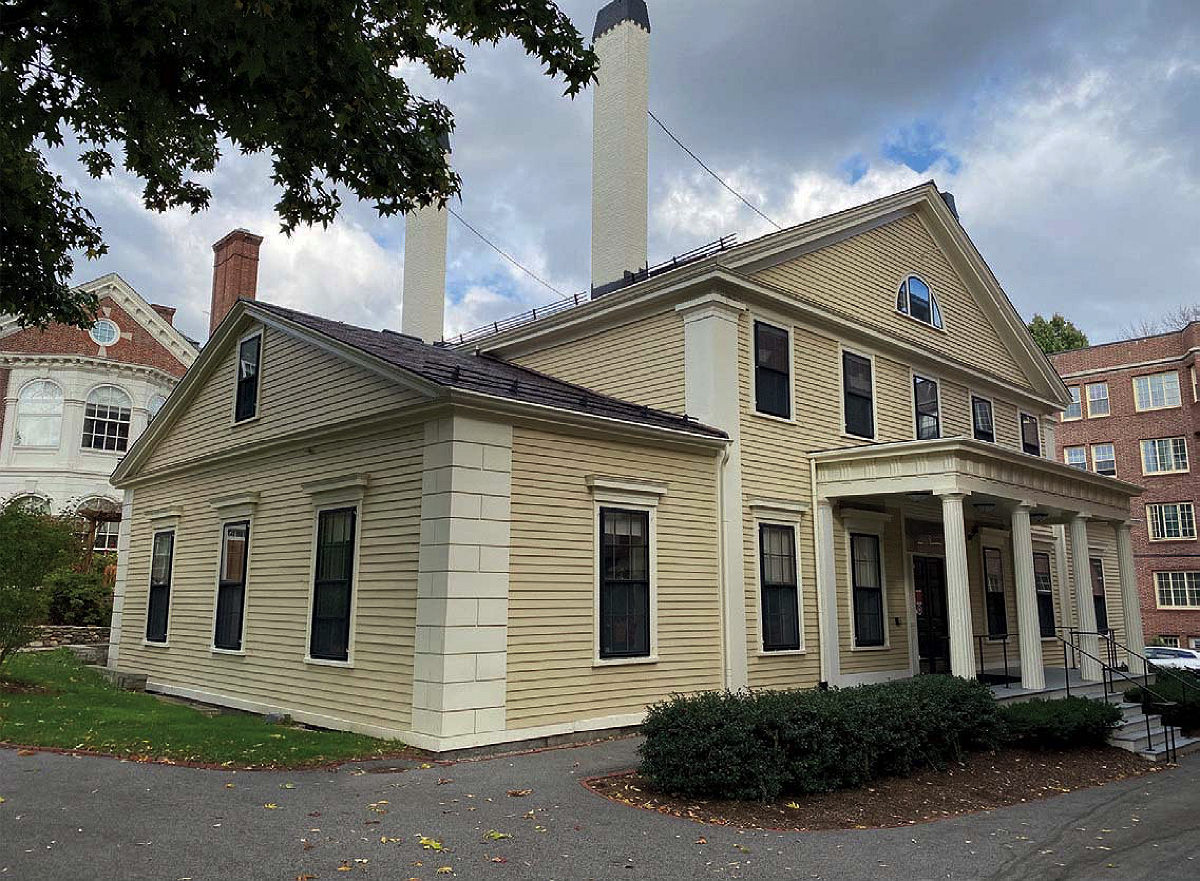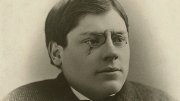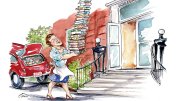The historic Warren House (built in 1833) at 1 Prescott Street and its 80,000 square-foot parcel of land next to Harvard Yard were bequeathed to the University by Henry Clarke Warren, A.B. 1879, who studied the history of philosophy and the Sanskrit language at Harvard. He had purchased the house from Charles Beck, professor of Latin language and literature, in 1891, and lived there until his death at age 44, in 1899.
Although Henry was not on the faculty, he was an independent scholar with deep connections to Harvard. He was the first to translate into English a large body of Buddhist texts, published in a book series he co-founded, the Harvard Oriental Series.

Warren House
Photograph by David Gauld
Henry was the third child of Samuel Dennis Warren (1817-1888), the Gilded Age paper baron and founder of S. D. Warren Company in Maine, which became the single largest paper mill in the world. Henry’s brothers also went to Harvard. Samuel D. Warren II, A.B. 1875, LL.B. ’77, was a lawyer who as board president of the Museum of Fine Arts (MFA) was responsible for moving it to its present location in the Fenway. (For the family trust he created along with his law partner Louis Brandeis, L.L.B. 1877, Samuel was sued by his brother Edward and subsequently killed himself in 1910. The lawsuit later came up during Brandeis’s 1916 confirmation for the Supreme Court.) Edward Perry Warren, A.B. 1883, was an author and art collector who built the MFA’s collection of Greek antiquities. Frederick Fiske Warren, A.B. 1884, was a utopist whose wife and daughter were immortalized in one of John Singer Sargent’s finest portraits. Henry’s philanthropist sister, Cornelia Lyman Warren, was a trustee of Wellesley College and a founder of the Denison House, a settlement house in Boston.
When Henry was 3, he fell from the carriage in which he was riding with his mother. The resulting spinal injury caused him lifelong disability and suffering, but he still led a full intellectual life, reading books in German, Dutch, French, Spanish, and Russian. After Harvard, he went on to study Sanskrit and chemistry at Johns Hopkins, and then the Pali language at Oxford until 1884, when he returned to live at his family’s country home in Waltham.
Warren came into a substantial inheritance in 1888, and three years later purchased the Beck house, adapting it for his disabilities: adding an elevator and constructing an elevated platform for sleeping, with a wood floor and rolling wood curtain. There, he became one of the world’s leading Pali experts.
In 1891, he co-founded the Harvard Oriental Series with Charles Rockwell Lanman, who had been Warren’s Sanskrit professor at Johns Hopkins before moving to Harvard. The Series was administered by the department of Sanskrit and Indian Studies and periodically published books offering English translations of Sanskrit and Pali texts. Lanman noted in his prefaces to the Series that their mission for publishing these books was “enabling the Occident to understand the Orient” and to share Eastern wisdom about life.
Volume 3, published in 1896, contained Warren’s magnum opus, the 540-page Buddhism in Translation: 130 passages from the Buddhist sacred texts translated from the original Pali into English. His facility with the language permitted him to mine primary sources and present them to English readers for the first time.
The book had a wide reach: its first printing was 1,000 copies, and the seventh and eighth printings, in 1922, were 2,000 each. Additionally, 200 pages of Buddhism in Translation were included in volume 45 of the Harvard Classics begun by President Charles William Eliot in 1909 (see “The ‘Five-foot Shelf’ Reconsidered,” November-December 2001, page 51). By that year, almost a quarter-million sets of the 50 volumes of the Classics had been sold. Eliot and Warren were friendly neighbors and Eliot visited Warren at his house shortly before his death, of myocarditis.
Unlike his more visible siblings, he lived a reclusive life, absorbed in his scholarship. Of all the siblings, Henry was closest to his art-collector brother Edward (“Ned”). Ned was openly homosexual and wrote a treatise idealizing same-sex relationships of ancient Greece. In the classic book about the family, The Mount Vernon Street Warrens, author Martin Green speculated that Henry, who never married, may also have been gay.
His University legacy lives on through both the Oriental Series and the Warren House. In addition to his house and land, Warren left Harvard most of his fortune, including an allocation to the Series, which continues to be published, now by the department of South Asian Studies (several dozen titles are still in print from Harvard University Press). The house was moved to its current location on the Prescott Street side of the original Warren parcel in 1900, clearing a site for McKim, Mead & White’s Freshman Union (now the Barker Center—fittingly, the home to the humanities departments). Warren House is now used by the department of Celtic languages and literatures and the committee on degrees in folklore and mythology. The Greek Revival house is listed on the National Register of Historic Places.








